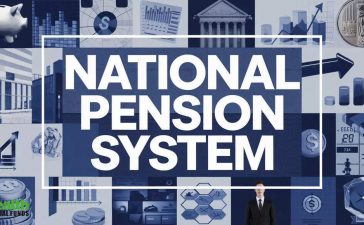
“Q2 FY2025 saw tailwinds in terms of a pick-up in capex after the Parliamentary Elections as well as healthy expansion in sowing of major kharif crops. However, sectors faced headwinds due to heavy rainfall and weak margins. We project a slight dip in India’s GVA and GDP growth in Q2 FY2025 to 6.6% and 6.5%, respectively,” Aditi Nayar, Chief Economist at ICRA, write in a note.
Government capital expenditure showed a promising recovery in Q2 FY2025, rising by 10.3% YoY to ₹2.3 trillion, reversing the sharp 35% contraction witnessed in Q1 FY2025. This rebound was led by key infrastructure-focused ministries such as the Ministry of Road Transport and Highways and the Ministry of Railways, which posted growth rates of 41.7% and 8.0%, respectively. However, the pace of state government spending remained muted, with the combined capital outlay and net lending of 22 states increasing by only 2.1% YoY in the quarter.
The industrial sector is anticipated to experience the most notable slowdown, with GVA growth expected to moderate to 5.5% in Q2 FY2025, from 8.3% in the preceding quarter. This decline is driven by a significant reduction in electricity generation growth, which is likely to slow to 2.0% from 10.4%, and mining and quarrying, where growth is estimated at 1.5%, down from 7.2%. Manufacturing is also expected to decelerate to 5.5%, compared to 7.0% in Q1, while construction activity is likely to grow at 7.0%, down from 10.5%. These trends are largely attributed to the impact of surplus rainfall, which disrupted mining and electricity demand and reduced retail activity, alongside weakened corporate margins in several sectors.
In contrast, the services and agriculture sectors are expected to show resilience. The services sector is projected to expand by 7.8% in Q2 FY2025, an improvement from the 7.2% recorded in Q1. Agriculture, forestry, and fishing are also forecasted to perform better, with growth estimated at 3.5%, up from 2.0%, supported by favorable kharif sowing conditions and an anticipated 5.7% rise in kharif foodgrain output.
Private sector investment also picked up significantly, with new project announcements surging to ₹6.7 trillion in Q2 FY2025, up from ₹2.2 trillion in the previous quarter. While government project announcements grew to ₹1.5 trillion from ₹1.1 trillion, private sector announcements drove most of the recovery, increasing sharply to ₹5.2 trillion from ₹1.1 trillion. However, project completions continued to lag, improving only marginally to ₹1.0 trillion in Q2 FY2025 from ₹0.7 trillion in Q1, partly due to monsoon-related delays.ICRA expects economic activity to gain momentum in the second half of FY2025, driven by the positive effects of a healthy monsoon, replenished reservoirs, and increased rural demand. Additionally, there is significant room for growth in government capital expenditure, which needs to expand by 52% YoY in the second half to meet the budgetary target for the year. However, risks such as slowing personal loan growth, geopolitical uncertainties, and their impact on commodity prices and external demand remain concerns.For the full fiscal year, ICRA projects GDP growth at 7.0% and GVA growth at 6.8%, reflecting a back-ended recovery.









